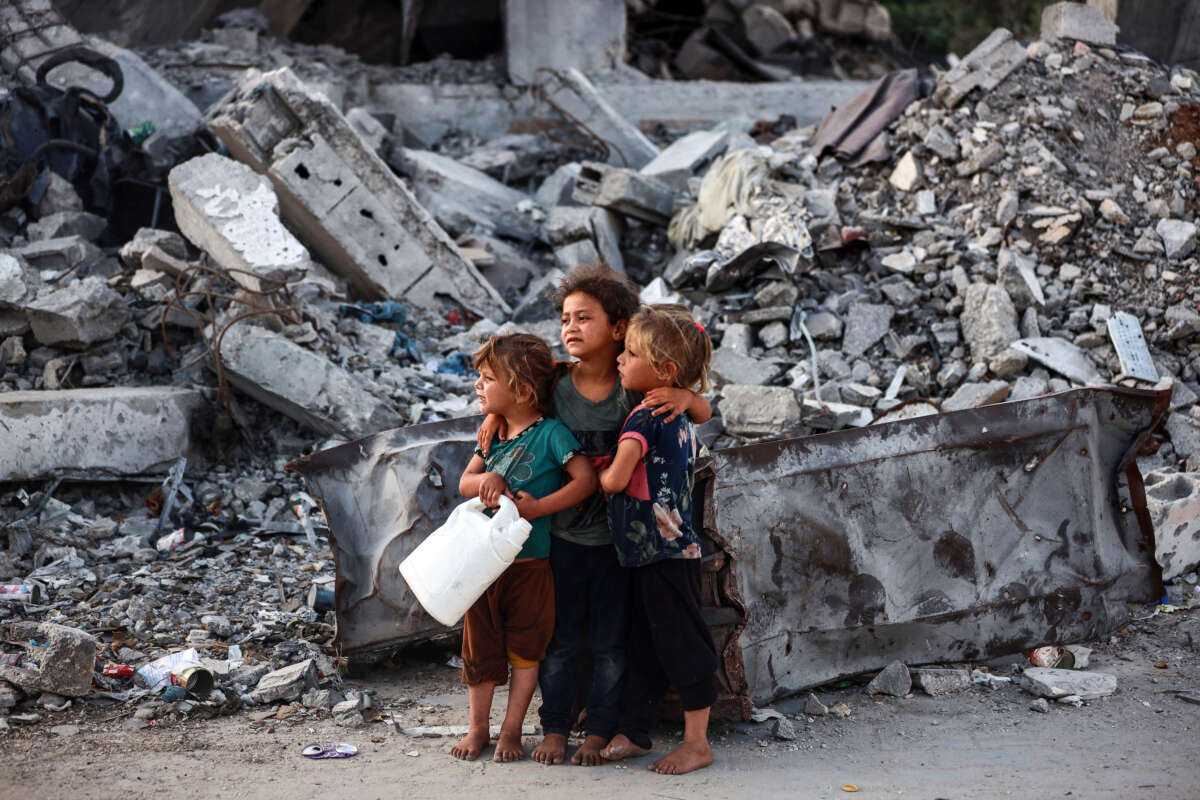Gaza's grief: Israel's strikes silence innocent souls, young lives

TEHRAN- As the world reflects on Children’s Day, celebrated on October 8 to honor the laughter, dreams, and innocence of children, the stark reality in Gaza casts a long shadow over this global festivity.
In a land where the sounds of laughter should fill playgrounds and homes, the cries of children echo against a backdrop of destruction and despair. For millions of children in Gaza, this day was not one of celebration, but a poignant reminder of their lost childhoods and interrupted dreams by Israel’s attacks.
Since October 2023, ‘the most moral army in the world’ has completely destroyed the concept of a ‘safe zone’ by dropping tons of bombs on the Gaza Strip.
During these attacks, about 17,000 children have turned into lifeless bodies that were placed in the arms of their parents or beneath the rubbles. They were sheltered in schools and hospitals along with their parents—places that the Israeli regime bombarded under the name of "Hamas hideouts."
Israel made every effort to turn the Gaza Strip into a fictional city that is discussed in stories; of course, a full-fledged dystopian city that perhaps no novelist has ever been able to create.
Rifk Ebeid and Shereen Malherbe are two children's authors of Palestinian origin who shared their feelings about the situation of children in Gaza with the Tehran Times.
Ebeid, a Palestinian American author, said: “As a Palestinian living in the U.S., I am horrified and haunted by the fact that the government to which I pay taxes is funding and supporting the genocide against my people. I go about my daily life as if through a haze, living but not living, feeling extreme levels of guilt while also being more hyper-aware of how grateful I should be for even the most mundane of things that I took for granted before.”
She emphasized the psychological toll of the ongoing attack: “I cycle through every emotion possible with just one scroll through my social media. I am in awe and admiration of our continued resistance against oppression, while at the same time feeling utter despair at the complete destruction of every single facet that makes life possible and livable.”
As a mother, the Palestinian author expressed particular horror at the targeting of children: “If the Israelis aren't taking our children's lives or maiming them forever, or destroying any family they have left, they have also completely destroyed any capacity for our children to learn, play, heal, laugh, wash, eat, and thrive.”
Ebeid explained, “Any words I write can do no justice. I feel that even my writing about how I feel is a non-issue because I'm not the one suffering through the genocide.”
Despite the despair, the author strives to maintain hope and resilience. “I remind myself not to fall into despair; we all rely on each other. When one part of us hurts, the other part must take over,” she stated.
Her commitment to education shines through her work: “I've always believed in the power of education, which is why I write my children's books about Palestine. Those of us living outside of Palestine have a duty to educate our children and instill in them the knowledge of their responsibility to carry on the fight for justice for our people.”
Ebeid has written many children's books about Palestine, among which “Birthday Kunafa,” “You Are the Color,” and “Baba, What Does My Name Mean?” could be mentioned.
Shereen Malherbe, a British-Palestinian novelist and children's author, shared her deep anguish over the situation in Gaza and told the Tehran Times: “To witness the utter devastation as thousands of children in Gaza are maimed, murdered, and starved has thrown into question the very foundation on which the 'free world' is supposedly built.”
“The majority of the world has plunged to new depths, ripping bare the dehumanization of others. Never again will you be able to recover if you stand idle now in the face of such atrocities,” the Palestine Book Awards nominee added.
She has written children's books such as “The Girl Who Lives Between Two Worlds” and “The Girl Who Stitched the Stars,” as well as Palestinian novels like “Yassini Girls” and “Jasmine Falling.”
Malherbe's words resonate with the resilience she sees in the children of Gaza. “Children of Gaza and Palestine, you are changing us because we are witnessing your faith and steadfastness, despite the horrors. From the ashes, you will rise in ranks and you are changing the world's future,” she adds, underscoring the strength of the human spirit in the face of overwhelming adversity.
AH/SAB
